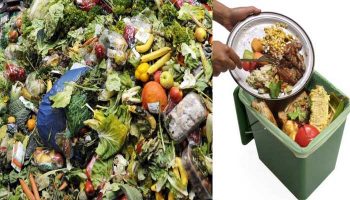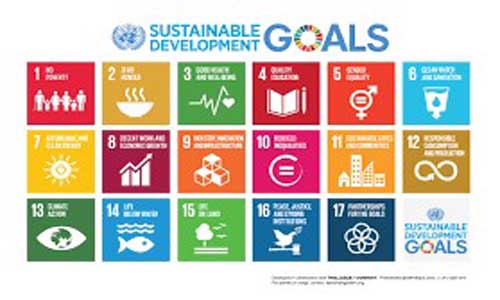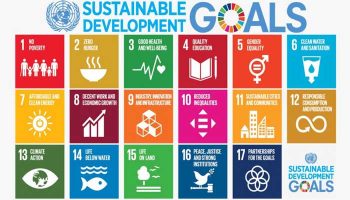
Cooked and uncooked food is wasted all over the world including Sri Lanka in massive quantities. It is estimated that around 5000 Metric tons of food is wasted per day in the country , and about 600 Metric Tons in Colombo. Food handling establishments, hotels, offices, schools, hostels, hospitals are some of the main institutions where food is wasted. Households too waste food in significant amounts. A Hospital generates about 01 – 04 metric tons of food waste per day, as visitors bring food for patients, where a single patient sometimes receives few packets of lunch which goes wasted.
On contrary according to the UN report on “State of Food Security and Nutrition in the World 2018”, Global hunger continues to rise, and 821 million people are suffering from hunger , and over 150 million children are stunted.
The following key facts show the importance and urgency of solving this issue.
- Number of people suffering from hunger in the world in 2017 is 821 million which is 1 in every 9 people
- It is 515 million in Asia,256.5 million in Africa, and 39 million in Latin America and the Caribbean
- Children under 5 affected by stunting (low height-for-age): 150.8 million (22.2%)
- Children under 5 affected by wasting (low weight-for-height): 50.5 million (7.5%)
- Percentage of women of reproductive age affected by anaemia: 32.8%

The energy, efforts, time and money spent by governments and farmers on food production is wasted with food loss and food waste.
Food is lost or wasted throughout the supply chain from agricultural production up to household consumption.
What is food loss and food waste?
In 2011, Food and Agricultural Organization ( FAO) revealed that around 1/3 of the world’s food was lost or wasted every year. Which is about 1.3 billion tons per year. This was an eye opener for many sectors and since then, actions were taken to address this issue. The 2030 Agenda for Sustainable Development Goals highlights “Sustainable Consumption and Production” as Goal 12, where, target 12.3 calls for halving per capita global food waste at retail and consumer levels by 2030, as well as reducing food losses along the production and supply chains.

In order to measure the progress of activities, Food Loss Index (FLI) and the Food Waste Index (FWI) were developed by FAO.
The Food Loss Index (FLI) estimates the food loss from post-harvest stage up to, the retail stage.
The Food Waste Index (FWI) estimates the food wasted at the retail and consumption levels.
Food loss is the decrease in the quantity or quality of food resulting from decisions and actions by food suppliers in the chain, excluding retailers, food service providers and consumers.
Food is wasted due to many reasons, such as products beyond expiry dates, left over food from various institutions, eateries and households.
Less food loss and waste would lead to more efficient land use and better water resource management with positive impacts on climate change and livelihood. Droughts and floods due to climate change will have a severe impact on food production, which emphasizes the importance of minimizing food loss and waste.
How can we reduce food loss and food waste?
- Create awareness among all stakeholders – farmers, food handlers, processors and traders, public and private sectors and civil society.
- Improve postharvest technologies, transportation and storage facilities for food.
- Educate consumers to purchase only required quantities of food, and serve small quantities of food at a time, which can be eaten.
- Encourage consumption of local food, ( food grown in the close proximity, which reduces transportation and storage.)
Reducing food loss and waste is critical in creating a Zero Hunger world and reaching the world’s Sustainable Development Goals (SDGs), especially SDG 2 (End Hunger)
For many people on the planet, food is available but for more than 820 million people who are hungry, food is not guaranteed. Therefore we need to increase the respect for food, as well as for the farmers who produce it, the natural resources that go into producing it. We need to determine and take action without further delay to minimize food loss and food waste for a better tomorrow.
Sujeewa Fernando – Assistant Director – Environment Pollution Control and Chemicals Management Division – Ministry of Environment and Wildlife Resources






